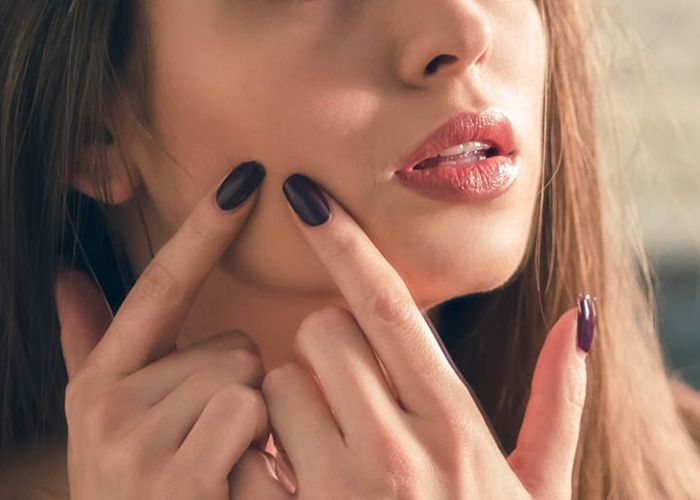As a skincare enthusiast with over 7 years of experience trying different products and ingredients, retinol has become a staple in my routine. This vitamin A derivative is renowned for its anti-aging and acne-fighting properties. However, I often get questions from readers about whether or not retinol should be used while traveling. Read below about “Should You Use Retinol While Traveling? Dermatologists Weigh In”.
The answer isn’t straightforward. Retinol makes your skin more sensitive to sunlight, which can be problematic when you’re spending long days exploring new destinations under the sun. At the same time, stopping retinol use for weeks while traveling can reverse the anti-aging and acne-fighting progress you’ve made.
To help settle this skincare dilemma, I consulted top dermatologists to get their expert opinions on using retinol while traveling. Here’s what they had to say:
Table of Contents
The Case for Continued Use

“I generally recommend patients continue using retinol when traveling,” says Dr. Sheila Farhang, a board-certified dermatologist based in Arizona. “Disrupting your retinol regimen can lead to clogged pores and breakouts. You also risk losing the anti-aging benefits if you quit using retinol for too long.”
Dr. Farhang suggests travelers pack a retinol with a lower concentration, like 0.3% retinol serum, for daily use. This weaker formula may be less irritating and drying than your regular 1% prescription retinoid treatment. She also advises bringing an antioxidant serum containing vitamin C or niacinamide to help combat retinol sensitivity.
Dr. Emily Newsom, a California-based dermatologist, agrees that staying on retinol while traveling is ideal.
“I recommend patients continue using retinol on trips less than two weeks. Retinol turnover in the skin takes about 14 days. Stopping for a short trip won’t make a huge difference in reversing photoaging, but it could worsen acne.
The Case for Stopping Retinol
While Drs. Farhang and Newsom endorse continued retinol use for most trips, other dermatologists think stopping retinol is smarter for long vacations with intense sun exposure.
“I advise patients to cease using retinol one week before traveling somewhere tropical or sun-filled, like a beach vacation,” says Dr. Sapna Palep, a board-certified dermatologist practicing in Nevada. “Retinol makes you photosensitive. You’ll burn more easily and could develop a rash or reaction.”
Dr. Palep recommends travelers substitute gentle antioxidant serums and moisturizers while off retinol. She also stresses the importance of diligent sun protection.
“Be vigilant about reapplying broad spectrum SPF 30 sunscreen every 2 hours when outdoors. Wear wide-brimmed hats and UV-blocking clothing for extra protection.”
Dr. Snehal Amin, a NYC dermatologist, takes an even more cautious stance:
“I recommend my patients stop retinol use one to two weeks before any vacation involving extended sun exposure. A beach trip, ski vacation, or sightseeing tour in a sunny destination warrants retinol cessation to avoid severe burns.
Dr. Amin adds that the risks outweigh the benefits of continuing retinol before high UV index vacations. She helps patients tailor mid-trip skincare routines focused on hydration and sun protection until retinol use can safely resume.
My Take as a Retinol User
After consulting the experts, I feel using retinol on shorter trips of 1-2 weeks is fine, especially if I pack the right protective products. For high sun vacations over 2 weeks, I plan to stop retinol 1-2 weeks pre-trip. I don’t want to jeopardize my skin’s safety just to stay on a product.
When traveling anywhere sunny, I’ll be hyper-diligent about reapplying broad spectrum SPF 30 or higher sunscreen every 2 hours. I also plan to wear wide-brimmed hats and UV-blocking clothes as much as possible outside. These precautions should help minimize any retinol sensitivity reactions.
Conclusion
I suggest my readers use their best judgment based on their individual retinol product strength, trip duration and activities. Speak to your dermatologist if you’re unsure what’s right for your situation. With smart planning and sun protection, most travelers can safely maintain their retinol regimen on vacation.
Have questions about using retinol on your next trip? Feel free to leave a comment below. I hope you like reading “Should You Use Retinol While Traveling? Dermatologists Weigh In”. I’m happy to help you craft a customized travel skincare plan. Safe travels and happy glowing skin!

Sophie Turner is the adventure travel writer behind AdventureTravelFam.com. With over 10 years of experience in travel writing and a Master’s degree in Tourism Management, Sophie shares her expertise in exploring unique destinations and providing family-friendly travel tips. Follow her adventures on Instagram @adventure_travelfamily.





